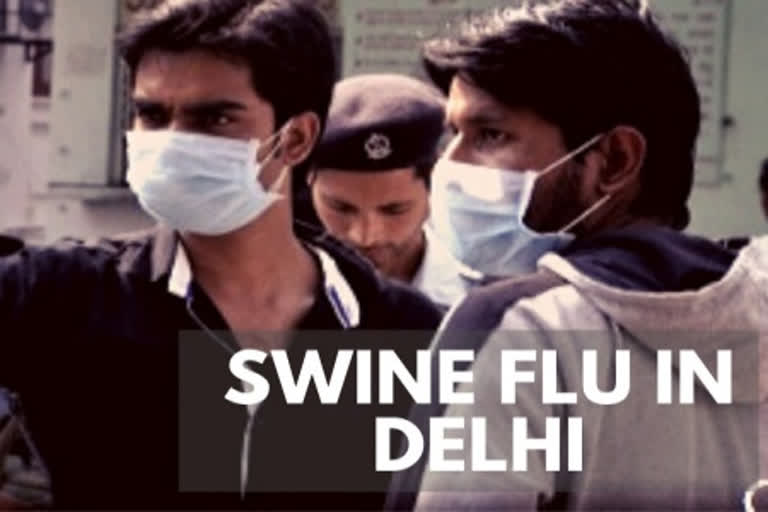Delhi: As many as 164 people have been diagnosed with swine flu in Delhi alone as on February 22, as per data released by National Centre for Disease Control (NCDC)
164 cases of swine flu reported from Delhi The data further claims that eight swine flu patients are admitted at hospitals across the national capital daily.
No deaths have been reported so far.
"The initial symptoms of swine flu include cough, cold, irritation in the throat, muscle pain, and fatigue, among others, " Dr Desh Deepak from Dr Ram Manohar Lohia Hospital, New Delhi told ETV Bharat.
Dr Deepak further said, "If there is prolonged fever, one must see a doctor and not ignore symptoms such as difficulty in breathing."
164 cases of swine flu reported from Delhi Last year, Delhi had reported 3, 627 cases of H1N1 of which 31 persons had died. The death toll across the country was 1,218 in 2019, according to NCDC data.
Swine flu is a contagious respiratory disease caused by A strain of the influenza virus, which enters the body through inhalation of contaminated droplets, or is transferred from a contaminated surface to the eyes, nose or mouth of a person.
What is swine flu?
- It is a contagious respiratory disease caused by A strain of the influenza virus (H1N1)
- It enters the body through inhalation of contaminated droplets
- It is also transferred from contaminated surface to the eyes, nose or mouth of a person
Facts
- In 2009, scientists recognized a particular strain of flu virus known as H1N1
- It is a combination of viruses from pigs, birds and humans
- In 2009, the world saw an outbreak of a scale as big that it was labelled a ‘pandemic’ by the World Health Organisation
Also read:Ahead of Trump's India visit, wall being constructed near slum in Ahmedabad
Symptoms
The signs and symptoms of swine flu are similar to those of infections caused by other flu strains and can include:
- Fever (but not always)
- Chills
- Cough
- Sore throat
- Runny or stuffy nose
- Watery, red eyes
- Body aches
- Headache
- Fatigue
- Diarrhoea
- Nausea and vomiting
Possible complications
- Worsening of chronic conditions, such as heart disease and asthma
- Pneumonia
- Neurological signs and symptoms, ranging from confusion to seizures
- Respiratory failure
